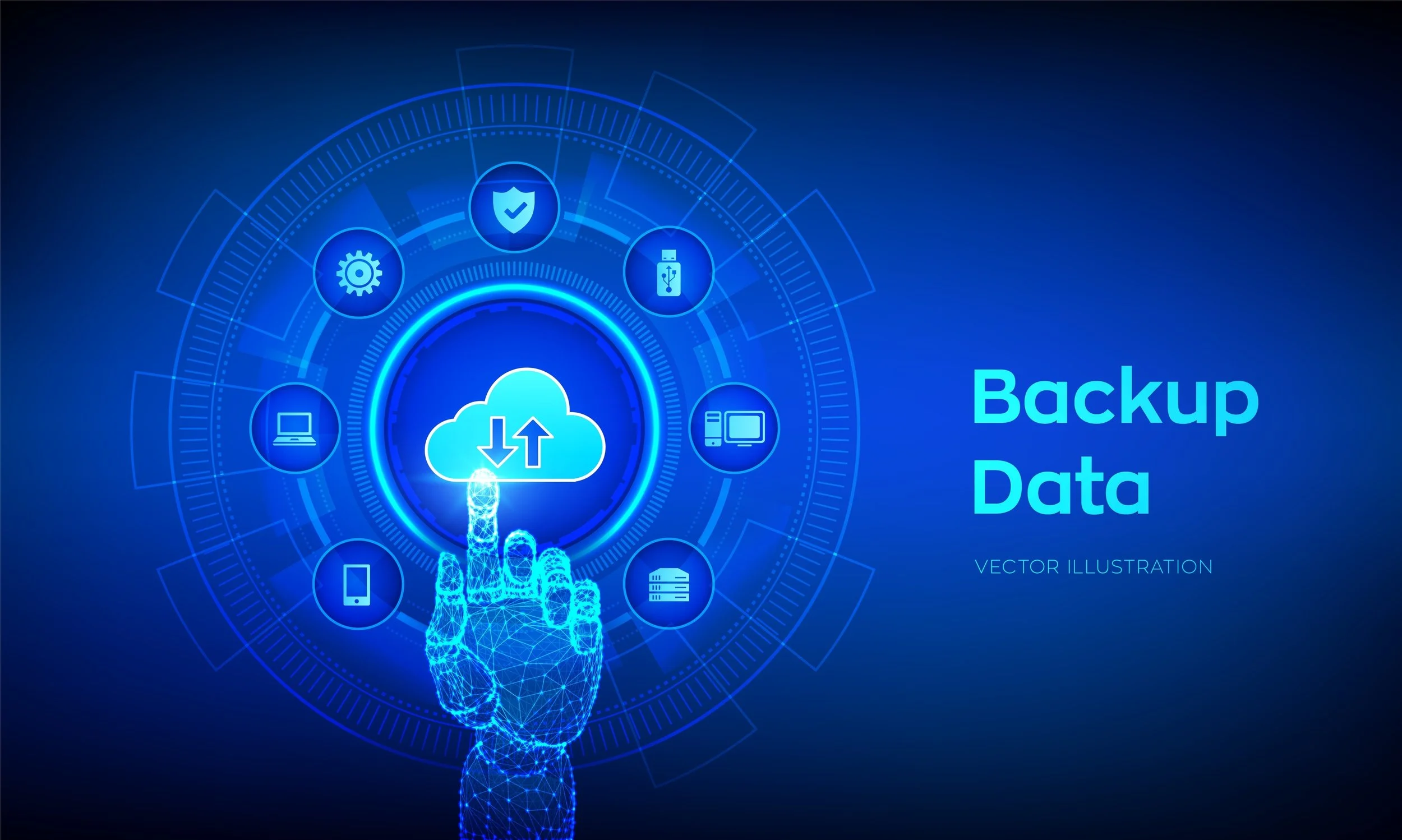Have You Backed Up Your Office 365 or G Suite Data? Here's Why You Need to Start
/One of the conveniences of cloud-based platforms is that they save data on a remote server that allows it to be accessible from any location and device. You can log in to Office 365 from the office or at home or access your G Suite documents from a tablet while traveling, and they’re all right there for you.
But that convenience can give companies a false sense of security that their cloud data is “safe enough” and doesn’t need to be backed up separately to a third-party solution, which could lead to unexpected data loss.
Despite all the modern office technology and virtual solutions that we now have access to, data loss can still occur and devastate a business. A majority of smaller companies end up having to close their doors within 6 months of a major data loss incident.
58% of small businesses are not prepared for data loss
While most companies realize that it’s imperative to backup their computer hard drives, mobile devices, and any on site servers they have, they often leave their cloud data vulnerable to loss by not including it in their backup strategy.
Reasons You Need to Back Up Cloud Solutions
The costs of losing data add up to the tune of $150 per lost record, according to IBM Security, with the average number of records lost in a data breach being 25, 575. That’s a cost of over 3.8 million, a loss that’s significant no matter what size company you have.
This coupled with the fact that more of a company’s data is being stored in the cloud due to the convenience and flexibility of cloud-based solutions, mean some major risk if that cloud-based data isn’t backed up.
Aren’t the cloud providers backing up my data?
They may have a copy stored for you, but both Microsoft and Google say they’re not responsible for any data loss:
Microsoft’s service agreement states:
“We strive to keep the Services up and running; however, all online services suffer occasional disruptions and outages, and Microsoft is not liable for any disruption or loss you may suffer as a result. In the event of an outage, you may not be able to retrieve Your Content or Data that you’ve stored. We recommend that you regularly backup Your Content and Data that you store on the Services or store using Third-Party Apps and Services.”
Google’s service agreement states:
“When permitted by law, Google, and Google’s suppliers and distributors, will not be responsible for lostprofits, revenues, or data, financial losses or indirect, special, consequential, exemplary, or punitive damages.”
Whether you use Office 365, G Suite, or another cloud solution, here’s why you need to use a 3rdparty backup tool that’s designed specifically to back up the data generated and saved in the cloud.
Accidental Deletion by Users
It’s great that Office 365 and G Suite allow users to collaborate on the same files to facilitate streamlined workflows, but that also means a user might accidentally overwrite or delete a file.
It’s not uncommon for a G Suite user to find out they’re running out of space, and delete things to free up more, accidentally deleting something they shouldn’t have.
A full back up of your cloud platform will ensure you have an additional copy of all your files, even if they’re accidentally deleted or overwritten.
Cloud Service Outage
When your data is “in the cloud” it’s stored on a physical server, usually within a large data center. That physical device is just as vulnerable to outages as a server in your office and can go down for any number of reasons, including:
· Hardware crash
· Software conflict
· Physical damage
· Power outage
· Brute force or malware attack
If an outage of your cloud provider occurs and you don’t have a backup copy of your data, you’re left at a standstill, hoping they come back online and that your data hasn’t been lost in the process.
Synced Files Spreading Malware
Both G Suite and OneDrive in Office 365 have the ability to sync your files between your device and the cloud storage, but this means that if an employee’s computer is infected with malware that destroys or encrypts files (like Ransomware) your cloud storage could also be infected as well, leaving you without your date, unless you’ve backed it up with a third party tool.
Lost or Stolen Devices
More of our workload is being offloaded to mobile devices in offices around the world. They make working when and where you want easier, but mobile devices are much more susceptible to theft or loss than a desktop computer that can’t fit in your briefcase.
If a tablet that’s logged into your G Suite or Office 365 account gets stolen, the thief could end up wiping out your data entirely if it’s not safely backed up elsewhere.
Get Help Backing Up Your Cloud Services Today!
There are special types of backup solutions used for backing up programs like G Suite or Office 365. BrainStomp can help you find the right tool and get a backup plan in place, so your cloud data is never at risk of being lost or damaged.
Contact us today to get started! Just call us at 260-918-3548 or reach out online.

